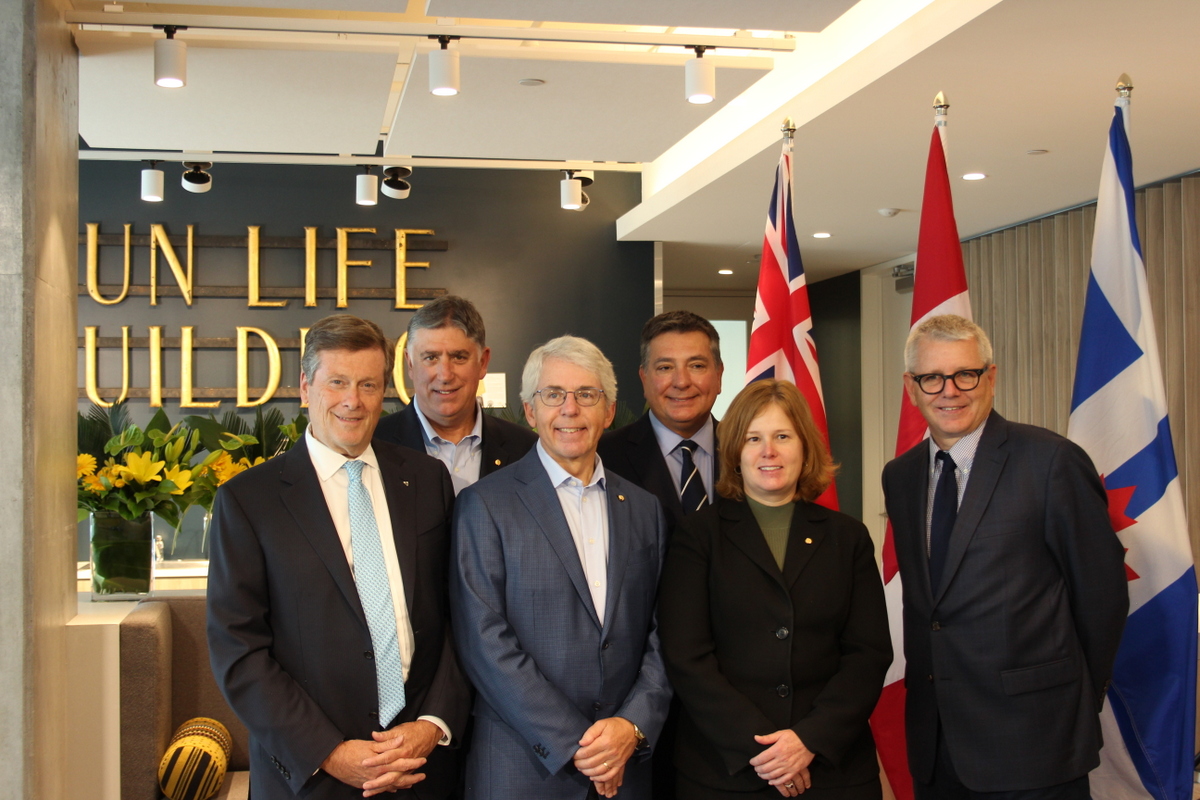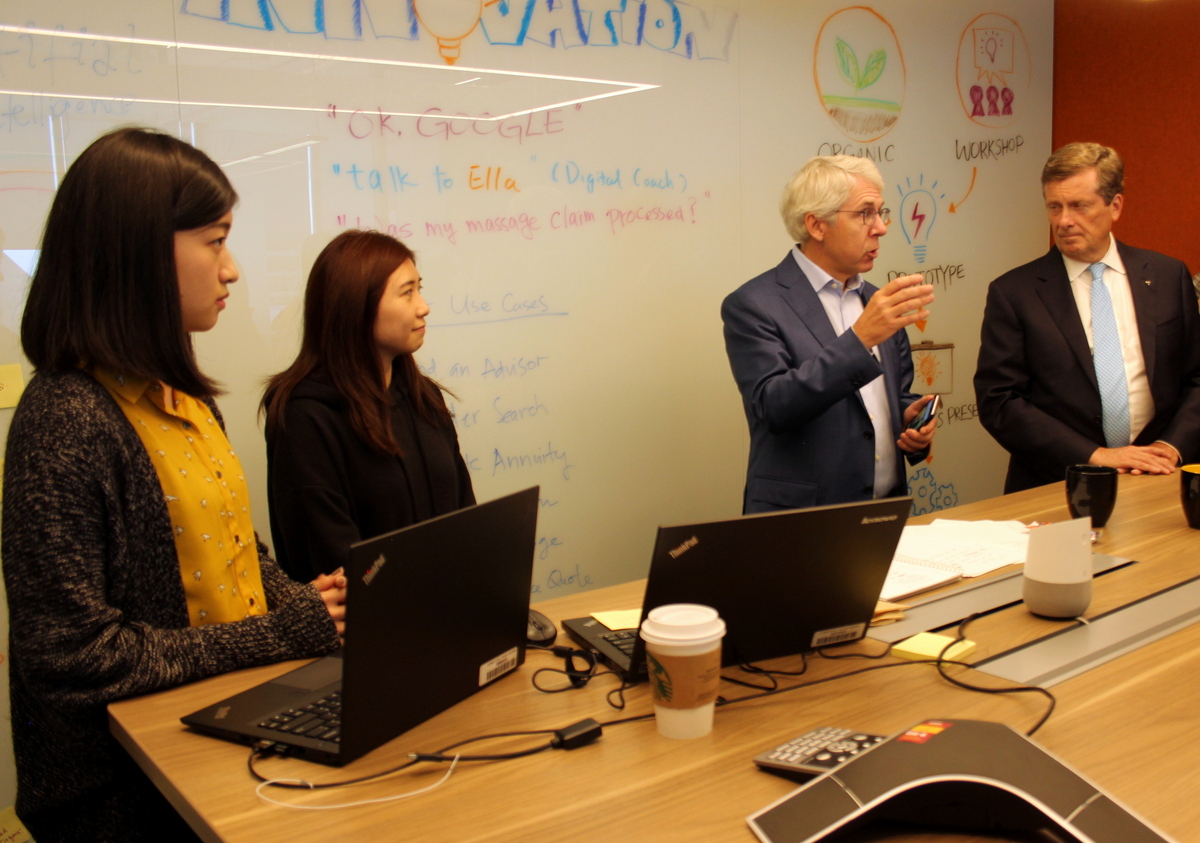Sun Life Financial Inc. officially opened its new global headquarters in Toronto on Sept. 13, setting the stage for its push into the FinTech space and work with an agile methodology.
One of the prized pieces of the 17 floors at the new One York address is the Ignite Studio, an innovation lab inspired by the offices of leading tech brands in Silicon Valley. Alice Thomas, chief digital technology officer at Sun Life, went on a Silicon Valley tour last year, visiting the spaces of Facebook and Google, among others. She also points to Toronto tech firms Pivotal Labs and Plastic Mobile as influencing the collaborative and open design of the Ignite Studio space.
And since employees started moving into the space last spring, it’s been a hit.
“People love it,” she says. “They love working in this manner because they get to see output quickly.”

In an official opening event that saw participation from all three levels of government – including Toronto Mayor John Tory, Ontario Minister of Finance Charles Sousa, and Liberal MP Adam Vaughn – Sun Life CEO Dean Connor said the office was designed to enable an agile approach to work. Agile development methodology is a style of working that is favoured by teams developing software, especially front-end systems. It favours a quicker path to launching a minimum viable product and then improving upon it with iterative changes based on feedback.
Sun Life’s new headquarters features more than 400 collaboration and meeting spaces for the over 2,000 employees based there. The conference rooms and the large touch screens placed on walls are wired with the intent to enable collaboration with other office locations around the world. There’s ample whiteboard space on the walls of the Ignite Lab, a kitchen stocked with snacks, comfortable seating areas alongside windows with a panoramic view of Toronto Island and Lake Ontario, and even a ping-pong table.
It’s all about a flexible work environment that will also move at a faster pace, says Mark Saunders, executive vice-president and CIO of Sun Life Financial. He’s fond of agile over the more traditional ‘waterfall’ approach.
“The traditional way of signing off on it and sending it back was too slow. This is more efficient and collaborative with the end game, being in the connected and mobile world we live in, releasing more connected and mobile experiences more quickly,” he says. “This is the way millennials need to work and want to work.”
To facilitate this style, Saunders says the Ignite Studio was purposely located on the 10th floor of the building. That puts it on a separate elevator bank from the rest of the office, so it’s just hard enough to get to without being too far away.
“This was a conscious decision to put that team down there to let them ideate and plot and scheme separately from the corporate mothership,” he says.

Working in an agile way is far from working without structure, Thomas points out. There’s a process in place at Ignite Studio. The developer teams treat the business units like clients, and invite them into the Design Lab to being the process of solving problems or dreaming up new client interactions. From there, it’s on to the Innovation Lab where mockups are constructed. After that, teams are assigned to iterate the product, working alongside the business unit in the studio space until the project is complete.
“Developers love it because they get instant feedback,” she says.
The requirements document for the office space’s project was huge, Thomas shares. By running it as an agile project, and with some outside help from a design firm, Sun Life was able to put together the space it desired on time and on budget. But both Thomas and Saunders acknowledge that not all projects can or should be run with agile approach – some are just best suited to traditional methods. Thomas estimates about 40 per cent of the projects she runs are agile.
“The core administration systems are still tightly managed because it’s incredibly important to our clients and to our brand that we don’t have any slip-ups,” Saunders says. “If you have a small error with the display on your mobile phone, you can fix that quickly.”
Thomas says agile is best when the solution to the problem isn’t yet known. It also requires that people from different teams come together and share the same workspace for the time of the project, which isn’t always possible.




